The following page is an archive of the Smart Start Webinar Series that took place May 19 through July 2, 2020. You may also be interested in an archive of the Smart Start Summer Summit that ran from August 3 through August 27.
From Uncertainty to Certainty:
Organized by the Alaska Department of Education and Early Development (DEED) and Region 16 Comprehensive Center (R16CC), this dynamic and engaging webinar series will help guide Alaska’s school districts through the framework to successfully address the risks and requirements for reopening schools for the 2020-21 school year. Join DEED and R16CC along with a series of guest speakers, to engage in collaborative dialogue and scenario planning for Alaska’s Smart Start 2020.
Questions?: Email: admin@aklearns.org
All sessions are held via Zoom.
Week 1 - Tuesday 8:45-10:30am & Thursday, 9:15-11:00am
|
Tue May 19, 8:45am - Panel 1 of 6 Topic: Stronger Together: Teaming for a Smart Start in 2020 Panelists: Ruth Wageman, Krister Lowe, and Anthony Taylor Excerpt: Leaders across the nation are working to figure out how to shape reentry and reopening plans to meet the needs of their school communities. To accomplish this, they are seeking support and wisdom from around them. Join our panelists as they provide you with some compelling ideas and practical solutions for how Alaska can harness the collective wisdom across our state, in your school systems, and with municipalities to meet the challenge of COVID-19. |
Thurs May 21, 9:15am - Work-session 1 of 6 Topic: What if? The Skill of Scenario Planning Guests: Anthony Taylor and Jenna Sedmak Excerpt: Over the course of six work-sessions, participants will be guided through the development of reentry and reopening plans using a complex tool called “Scenario Planning” to support the mutual goals of districts, parents, and the community. Participants will have the opportunity to learn from and collaborate with other district teams around concerns with reopening schools, moving forward as a school district, and maintaining the conditions, continuity, and capacities for learning. |
Week 2 - Tuesday Bonus Session and In Partnership with ASDN
|
Bonus Session! Tue May 26, 8:45am Topic: Keys to Resiliency Join us at 8:45 at our regular Zoom Smart Start link then we'll head over as a group to join Ken Trump's 9am webinar: Student & Staff Reentry - Keys to Resiliency and Promoting Social and Emotional Wellness. At 10am, after Ken's webinar, we'll return to our Smart Start Zoom for further discussion until 10:30. May 27 - 29 ASLI Alaska School Leadership Institute 2020, sponsored by the Alaska Staff Development Network, will focus on the question: How should we plan for opening school next fall - and where do students begin? *ASLI 2020 is full * Focus: CONTINUITY for Learning Presenters/Facilitators: Lexie Domaradzki, Bobbi Jo Erb, Ricky Robinson, Victoria Romero, and Gary Whitely Topics: Building resiliency in students and staff; communicating through a major disruption, and tools for effective communication - with colleagues, students and families; using data for designing fall instruction; planning for different scenarios for opening school next year. 2 Strands: Teacher/Instructional Leaders and Building /Central Office Leaders |
Week 3 - Tuesdays & Thursdays, 9:15-11:00am
|
Tuesday June 2 - Panel 2 of 6 Topic: CONDITIONS for Learning Panelists: Kenneth Trump, President of National School Safety and Security; Mary Ellen Elia, Senior Fellow at International Center for Leadership in Education; Bernadette Anderson, Chief Community and Culture Specialist at Academic Development Institute; Laura Mulgrew, Member AK Education Challenge Safety and Well-Being Committee and Special Education Teacher in Juneau. Excerpt: The closing of school doors has us worried about the learning gaps and much more. Our schools are safety nets for children and their families. Panelists will share stories and lessons learned about the various considerations, challenges, and questions district teams need to consider in relationship to the operational conditions and the ever-changing future possibilities that COVID-19 is offering. |
|
Thursday June 4 - Work-session 2 of 6 Topic: What if? The Skill of Scenario Planning - Trend Analysis Guests: Anthony Taylor and Jenna Sedmak Excerpt: In this workshop, we will build on the first step of the scenario planning by showcasing different possible scenarios and do work to identify trends that apply to the stakeholders in Alaska and to your Alaska Smart Start 2020 plan. |
Week 4 - Tuesdays & Thursdays, 9:15-11:00am
|
Tuesday June 9 - Work-session 3 of 6 Topic: What if? The Skill of Scenario Planning - Managing Uncertainty Guests: Anthony Taylor and Jenna Sedmak Excerpt: In this workshop, we will build on the trends from the previous workshop and create a variety of relevant scenarios that will impact your Alaska Smart Start 2020 plan, and the reopening of your school. We will also be sharing best practices on how to communicate with and engage different stakeholders in this process for successful implementation. |
|
Thursday June 11 - Panel 3 of 6 Topic: CONTINUITY of Learning Guest: Willard R. Daggett, Ed.D., Founding Partner at International Center for Leadership in Education |
Week 5 - Tuesdays & Thursdays, 9:15-11:00am
|
Tuesday June 16 - Work-session 4 of 6 Topic: What if? The Skill of Scenario Planning - Implications and Paths Guests: Anthony Taylor and Jenna Sedmak Excerpt: In this workshop, we will start moving into our individual scenario plans and share the implications of various scenarios, and how they will apply to our Alaska Smart Start 2020 plans. We will also be sharing tools to equip and support your team with managing change. |
|
Thursday June 18 - Panel 4 of 6 Topic: CONTINUITY of Learning Panelists: Dr. Candice McQueen, CEO of the National Institute for Excellence in Teaching; John Bailey, Visiting Fellow at the American Enterprise Institute; Amy Gallaway, 2020 Alaska Teacher of the Year and West Valley High School history, government, and career education teacher in Fairbanks. Excerpt: The closing of school doors has us worried about the learning gaps and much more. Our schools are safety nets for children and their families. Panelists will share stories and lessons learned about the various considerations, challenges, and questions district teams need to consider in relationship to the operational conditions and the ever-changing future possibilities that COVID-19 is offering. |
Week 6 - Tuesdays & Thursdays, 9:15-11:00am
|
Tuesday June 23 - Work-session 5 of 6 Topic: What if? The Skill of Scenario Planning - Next Steps Guests: Anthony Taylor and Jenna Sedmak Excerpt: In this workshop, you’ll bring your Alaska Smart Start 2020 plans to share with others to learn best practices and discuss the implications around different plans. |
|
Thursday June 25 - Panel 5 of 6 Topic: CONDITIONS for Learning Panelists: Katherine Bassett, CEO at Tall Poppy and Co-Founder at Research and Assessment Design: Science Solution; Hal Friedlander, Co-Founder and Board Chair, The Technology for Education Consortium; Ben Walker, Science Teacher at Romig Middle School, 2018 Alaska Teacher of the Year. |
Week 7 - Tuesdays & Thursdays, 9:15-11:00am
|
Tuesday June 30 - Work-session 6 of 6 Topic: What if? The Skill of Scenario Planning - Lessons Learned Guests: Anthony Taylor and Jenna Sedmak Excerpt: In this workshop, we’ll be finalizing this version of our Alaska Smart Start 2020 plans to share lessons learned, and we’ll be sharing best practices to remain proactive to changes in the future. |
|
Thursday July 2 - Panel 6 of 6 Topic: CAPACITIES for Learning Panelists: Dr. Marguerite Roza, Director of Edunomics Lab and Research Associate Professor At Georgetown University; Cricket Heinze, Former Executive Director of Knowledge Sharing, The New York City Department of Education; Tim Parker, NEA-Alaska President and high school English teacher in Fairbanks; Mike Hanley, Superintendent of both Aleutian Islands and Chugach school districts. |
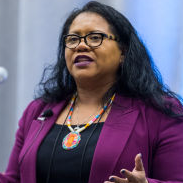 Bernadette Anderson is Academic Development Institute’s Chief Community and Culture Specialist. She has led ADI professional development since 2000 for senior staff at multiple State and Local Education Agencies (SEA’s/LEA’s), Bureau of Indian Education, Tribal Education Agencies, and nonprofits in school-based instructional improvement. She has an Ed.S. Educational Leadership Superintendent and is pursuing a doctoral degree in Education from Northwest Nazarene University. Bernadette has over 20 years of experience as a professional development specialist in parent education. She directs ADI’s School Community Network, is involved in the Department of Education State Tribal Education Partnership Grants and Native Youth Community Projects, and for several years she coordinated professional development centered on parent involvement for the Illinois State Board of Education (ISBE). She managed and coordinated services for 21st Century Community Learning in the Metro-East Illinois area. She also serves on the Illinois State Board of Education Committee of Practitioners. She was a school board member, served as a School Reform Coach, coordinated ISBE Summer Bridges Reading Camp (PreK–6) training and taught in the Reading Camp. She managed one of four ISBE parent-engagement pilots. She has a B.A. in Political Science from the University of Idaho and a M. Ed. Educational Leadership- Building Administrator from Northwest Nazarene University. She is from the Nez Perce reservation located in Idaho where her Nez Perce family resides. Bernadette Anderson is Academic Development Institute’s Chief Community and Culture Specialist. She has led ADI professional development since 2000 for senior staff at multiple State and Local Education Agencies (SEA’s/LEA’s), Bureau of Indian Education, Tribal Education Agencies, and nonprofits in school-based instructional improvement. She has an Ed.S. Educational Leadership Superintendent and is pursuing a doctoral degree in Education from Northwest Nazarene University. Bernadette has over 20 years of experience as a professional development specialist in parent education. She directs ADI’s School Community Network, is involved in the Department of Education State Tribal Education Partnership Grants and Native Youth Community Projects, and for several years she coordinated professional development centered on parent involvement for the Illinois State Board of Education (ISBE). She managed and coordinated services for 21st Century Community Learning in the Metro-East Illinois area. She also serves on the Illinois State Board of Education Committee of Practitioners. She was a school board member, served as a School Reform Coach, coordinated ISBE Summer Bridges Reading Camp (PreK–6) training and taught in the Reading Camp. She managed one of four ISBE parent-engagement pilots. She has a B.A. in Political Science from the University of Idaho and a M. Ed. Educational Leadership- Building Administrator from Northwest Nazarene University. She is from the Nez Perce reservation located in Idaho where her Nez Perce family resides.
|
|
John was Deputy Policy Director to the U.S. Secretary of Commerce where he served on the working group that created the first National Pandemic Preparedness Strategy. He also served as the Director of Educational Technology at the U.S. Department of Education. John co-founded the strategic advisory firm Whiteboard Advisors, served as a senior program officer at the Bill and Melinda Gates Foundation, and most recently was the VP of Policy for Governor Jeb Bush’s Foundation for Excellence in Education. John is a Pahara-Aspen Institute Fellow and a member of the Aspen Global Leadership Network. |
|
Katherine is currently the CEO of Tall Poppy, LLC an education consulting organization. Through Tall Poppy, Ms. Bassett serves as Education Consultant to the JFK Library Foundation; Director of Partnerships for the Center for Curriculum Redesign; and has served clients including the Utah State Board of Education, the University of Phoenix, Albany State University. She served as the founding President and CEO of the National Network of State Teachers of the Year and as Director of Policy and Partnerships for the Center for Educator Effectiveness at Pearson, working to support research into educator practice and self-efficacy, and to building partnerships with like-minded organizations to support education. Formerly at ETS, Katherine led the development of the National Board for Professional Teaching Standards certificates for Library Media and Literacy, co-developed the Take One! program booklet, led the development of performance-based assessments across the continuum of professional educator practice in four states and worked with six states to develop a common continuum of practice. She led strategic bidding across the US resulting in multiple state assessment awards for performance-based assessments. In addition, she has facilitated the work of a consortium to develop the Teacher Leader Model Standards and served on the committees that revised the InTASC standards and defined learning progressions for those standards. She co-facilitated the development of the Model Code of Educator Ethics and has led the development of the Teacher Leadership Initiative competencies and Capstone project for the NEA, NBPTS, and CTQ. She is a Co-Founder at Research and Assessment Design: Science Solution, an organization focused on assessing social and emotional learning. Katherine’s research and policy work has focused on teacher leadership, professional career continua in education, engagement of educators in the policy process, and equity issues. Designing and delivering professional learning, particularly around leadership and acquisition of expertise, are hallmarks of Katherine’s practice and she is a talented motivational speaker. Bassett spent 26 years in the classroom as a middle school librarian and served as New Jersey's 2000 State Teacher of the Year. |
Dr. Dagget's System for Effective Instruction and Rigor/ Relevance Framework are the cornerstones of many school improvement efforts throughout the United States, and his powerful keynote messages help his audience challenge assumptions about the purposes, benefits, and effectiveness of current practices. Before founding and now serving as Chairman of the International Center for Leadership in Education, Dr. Daggett was a teacher, local administrator, and a director with the New York State Education Department. |
Prior to her appointment in New York, MaryEllen served for ten years as superintendent of schools in Hillsborough County, Florida. In Hillsborough, which includes Tampa and is the nation’s eighth largest school district. She successfully implemented higher learning standards, partnered with teachers to develop a comprehensive evaluation system, and earned national recognition for gains in student achievement. MaryEllen has been honored for her work, both in Florida and on a national stage. In 2015, she was named Florida’s Superintendent of the Year, received the AASA Women in School Leadership Award from the School Superintendents Association, and was one of four finalists for the National Superintendent of the Year award. MaryEllen’s experience as a highly-successful senior school administrator coupled with her deep personal commitment to make every student all they are capable of being, enables her to now provide great advice and leadership to school districts throughout the country |
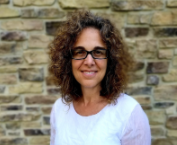 Amy Gallaway is the Alaska 2020 Teacher of the Year and currently works at West Valley High School in the Fairbanks Northstar Borough School District where she teaches history, government, and career education to 9th-12th graders. She has 21 years of experience in both rural and urban Alaska empowering students to find and use their voice through personalized learning and authentic assessment and has spent her career working for student equity through civic literacy. She is a social studies curriculum writer and a mentor for the Center for Civic Amy Gallaway is the Alaska 2020 Teacher of the Year and currently works at West Valley High School in the Fairbanks Northstar Borough School District where she teaches history, government, and career education to 9th-12th graders. She has 21 years of experience in both rural and urban Alaska empowering students to find and use their voice through personalized learning and authentic assessment and has spent her career working for student equity through civic literacy. She is a social studies curriculum writer and a mentor for the Center for CivicEducation’s James Madison Legacy Project. She is also the Gilder Lehrman 2012 Alaska History Teacher of the Year and a member of the Commissioner’s Teacher Educator Advisory Council. |
|
|
|
|
|
|
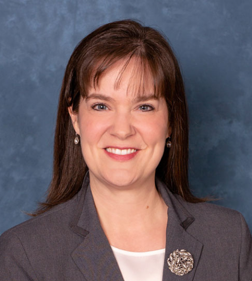 Dr. Candice McQueen has been CEO of the National Institute for Excellence in Teaching since January 2019. During the last two decades, NIET’s collective efforts to improve teaching and learning through a focus on human capital have impacted more than 275,000 educators, 30,000 teacher leaders, and 2.75 million students. Prior to joining NIET, Dr. McQueen was Tennessee Commissioner of Education and led the creation of Tennessee Succeeds, which outlines strategies to increase college and career readiness for Tennessee’s 1 million students. In 2018, students posted record high ACT scores and graduation rates, and researchers at Georgetown pointed to Tennessee’s evaluation and professional development model as leading to improvement in teachers and students. Before that, she was dean of the college of education at Lipscomb University. She began her career as a classroom teacher. Dr. Candice McQueen has been CEO of the National Institute for Excellence in Teaching since January 2019. During the last two decades, NIET’s collective efforts to improve teaching and learning through a focus on human capital have impacted more than 275,000 educators, 30,000 teacher leaders, and 2.75 million students. Prior to joining NIET, Dr. McQueen was Tennessee Commissioner of Education and led the creation of Tennessee Succeeds, which outlines strategies to increase college and career readiness for Tennessee’s 1 million students. In 2018, students posted record high ACT scores and graduation rates, and researchers at Georgetown pointed to Tennessee’s evaluation and professional development model as leading to improvement in teachers and students. Before that, she was dean of the college of education at Lipscomb University. She began her career as a classroom teacher. |
|
|
 Tim Parker is the president of NEA-Alaska and a high school English teacher from Fairbanks. Tim loves making student learning happen in his own classroom, and advocates for laws, policies, and programs throughout Alaska and the country that will increase student learning in all of our public schools. Being a great educator means elevating students and their learning to the highest levels while also focusing on how schools function and the continued need for economic, racial, and social justice. Tim Parker is the president of NEA-Alaska and a high school English teacher from Fairbanks. Tim loves making student learning happen in his own classroom, and advocates for laws, policies, and programs throughout Alaska and the country that will increase student learning in all of our public schools. Being a great educator means elevating students and their learning to the highest levels while also focusing on how schools function and the continued need for economic, racial, and social justice. |
|
Her recent research traces the effects of fiscal policies at the federal, state, and district levels for their implications on resources at the school and classroom levels. Her calculations of dollar implications and cost-equivalent trade-offs have prompted changes in education finance policy at all levels in the education system. As part of her groundbreaking work on weighted student funding, Dr. Roza devised a “%SBA metric,” enabling an apples-to-apples comparison of total district funds in a WSF formula. This metric is now commonly recognized as the foundational measurement of WSF formulas nationwide. She has written extensively on financial transparency and the opportunity toward equity and productivity. Dr. Roza has led projects including the Institute for Education Sciences multi-year study of weighted student funding, the Finance and Productivity Initiative at the Center on Reinventing Public Education (CRPE) and the Schools in Crisis Rapid Response Paper Series. She served as Senior Economic Advisor to the Bill and Melinda Gates Foundation. Her work has been published by Education Sector, the Brookings Institution, Public Budgeting and Finance, Education Next, and the Peabody Journal of Education. Dr. Roza is author of the highly regarded education finance book, Educational Economics: Where Do School Funds Go? Dr. Roza earned a Ph.D. in Education from the University of Washington. Prior, she served as a Lieutenant in the U.S. Navy teaching thermodynamics at the Naval Nuclear Power School. She holds a B.S. from Duke University and has studied at the London School of Economics and the University of Amsterdam. |
|
|
|
|
|
Ken is a third-year doctoral student at the Johns Hopkins University School of Education where he researches strategic crisis leadership and school administrator communications with parents about school safety in highly ambiguous and uncertain contexts. |
|
|
|
|
From Uncertainty to Certainty: Discussion-based collaboration and scenario planning to assist Alaska’s school districts as they consider the Conditions, Continuity, and Capacities for Learning through Alaska’s Smart Start 2020.
We can all agree that these are uncertain times, and for many, the most challenging times in our history. As educators, we know that student learning must continue in the face of hardship. Alaska’s students and their families count on us not only for their education - but also their safety.
Last week DEED’s Commissioner Johnson introduced the framework for Alaska’s Smart Start 2020. To help guide you through the framework, and to strategize implementation, DEED has developed a seven-week series of workshops and expert panel discussions.
Each week DEED will host two sessions:
- One session each week will host a panel discussion with expert guest speakers from around the nation to engage in dialogue surrounding the uncertainties that face Alaska’s school districts. These experts will facilitate conversations to guide us through the considerations of how to best approach the reopening of schools, and how to successfully provide the conditions, continuity, and capacities for learning.
- The second session will be focused on the practice and skill of scenario planning. Together we can work through the process of creating your Smart Start Plan to manage and mitigate the risks around reopening your schools.
This series is dynamic and will continue to evolve to meet the needs of districts. Because this is new and uncharted territory for all of us, the agenda may change to address relevant topics and concerns that arise in the process. Please know that DEED is working tirelessly to create a forum that will be relevant and effective as we navigate this unprecedented challenge.
Together, we can turn this crisis into an opportunity.
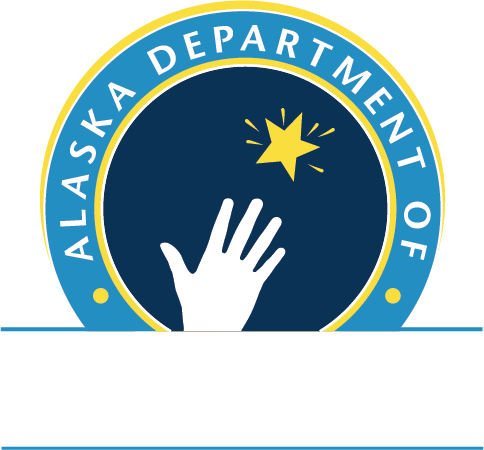
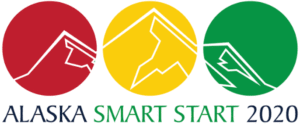
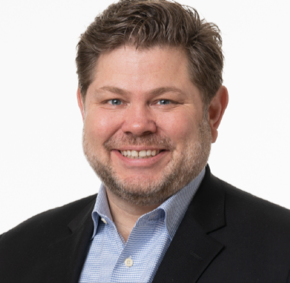 John P. Bailey has experience spanning government, philanthropy, and the private sector. John is a visiting Fellow at the American Enterprise Institute, where he has recently
John P. Bailey has experience spanning government, philanthropy, and the private sector. John is a visiting Fellow at the American Enterprise Institute, where he has recently 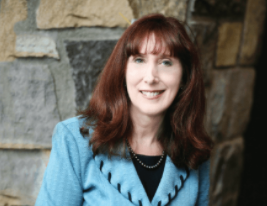 Katherine Bassett is an education innovator and advocate. Throughout her career, she has advocated for students to receive the highest-quality of education regardless of their zip code or family circumstances. She has championed the strengthening of the teaching profession and the inclusion of educator voices in every aspect of education policy formation and implementation.
Katherine Bassett is an education innovator and advocate. Throughout her career, she has advocated for students to receive the highest-quality of education regardless of their zip code or family circumstances. She has championed the strengthening of the teaching profession and the inclusion of educator voices in every aspect of education policy formation and implementation. Dr. Bill Dagget Ed.D., Founder and Chairman of the International Center for Leadership in Education (ICLE), is recognized worldwide for his proven ability to move PreK-12 education systems toward more rigorous and relevant skills and knowledge for all students. For 25 years, he has crisscrossed our nation, as well as the industrialized world, to lead school reform efforts to effectively prepare students for their futures.
Dr. Bill Dagget Ed.D., Founder and Chairman of the International Center for Leadership in Education (ICLE), is recognized worldwide for his proven ability to move PreK-12 education systems toward more rigorous and relevant skills and knowledge for all students. For 25 years, he has crisscrossed our nation, as well as the industrialized world, to lead school reform efforts to effectively prepare students for their futures. 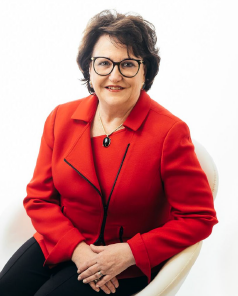 MaryEllen Elia is a Senior Partner at the International Center for Leadership in Education. She is the former New York State Commissioner of Education and President of the University of the State of New York (USNY). In this role, she oversaw the work of more than 700 school districts with 3.2 million students; 7,000 libraries; 900 museums; and more than 50 professions encompassing nearly 900,000 licensees. A native New Yorker, MaryEllen has nearly 5 decades of experience as an educator and was New York’s first female Education Commissioner. Her vast experience in innovation and community schools continue to benefit schools across the country.
MaryEllen Elia is a Senior Partner at the International Center for Leadership in Education. She is the former New York State Commissioner of Education and President of the University of the State of New York (USNY). In this role, she oversaw the work of more than 700 school districts with 3.2 million students; 7,000 libraries; 900 museums; and more than 50 professions encompassing nearly 900,000 licensees. A native New Yorker, MaryEllen has nearly 5 decades of experience as an educator and was New York’s first female Education Commissioner. Her vast experience in innovation and community schools continue to benefit schools across the country. 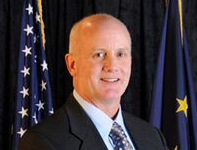 Mike Hanley currently serves as the superintendent of both the Aleutian Region and Chugach school districts. He has been involved in Alaska education for 28 years in a variety of roles, including serving as teacher, principal, commissioner, and superintendent. He earned his Bachelors of Business at Bethel College in Minnesota and received Education Degrees from the University of Alaska Anchorage. Mr. Hanley runs several small businesses and has worked as a commercial fisherman for 15 years.
Mike Hanley currently serves as the superintendent of both the Aleutian Region and Chugach school districts. He has been involved in Alaska education for 28 years in a variety of roles, including serving as teacher, principal, commissioner, and superintendent. He earned his Bachelors of Business at Bethel College in Minnesota and received Education Degrees from the University of Alaska Anchorage. Mr. Hanley runs several small businesses and has worked as a commercial fisherman for 15 years.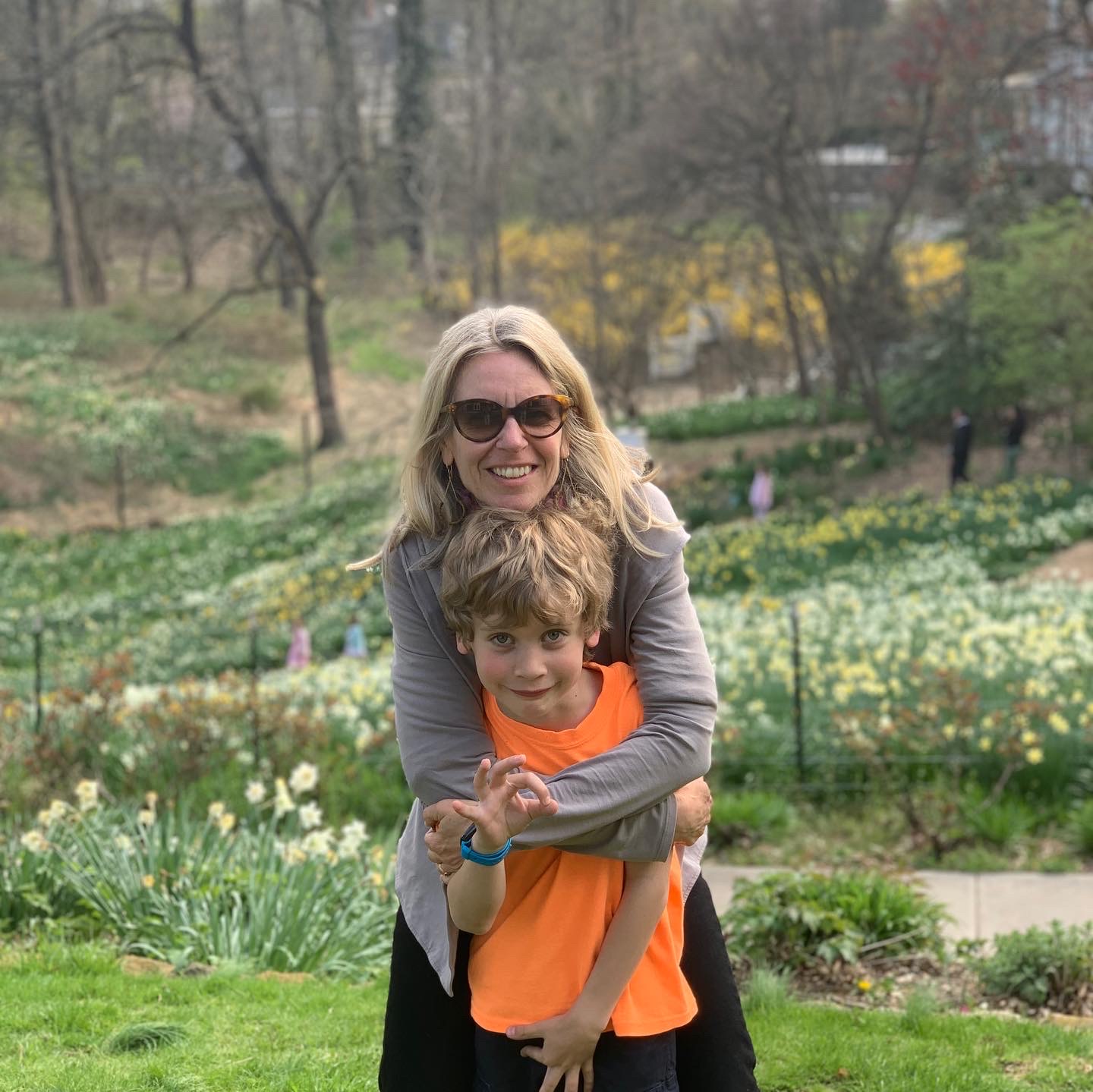 Juliette Heinze better known as “Cricket,” is a consultant for Opportunity Labs, a non-profit organization that created the Return to School Roadmap and is working with six states to support their reopening plans. Cricket has worked in education for 25 years, with extensive experience both within public school systems and nationally, in research and evaluation. Most recently, she was the Executive Director of Knowledge Sharing at the New York City Department of Education, where with support from the Gates Foundation she oversaw the development of WeTeachNYC, the district’s online learning platform for its 80,000 teachers. Before joining the NYCDOE, she spent over a decade as a researcher and evaluator for organizations including Education Development Center, Scholastic, and New Leaders for New Schools, and her writing has appeared in academic journals, books, and magazines. Cricket began her career in education as an English teacher in a public school outside of San José, Costa Rica and went on to become a 2nd grade Spanish bilingual teacher in the Los Angeles Unified School District. She holds a Master’s degree in Education and Sociology from Teachers College Columbia University and is passionate about improving systems to foster joyful learning experiences for every child. She lives in picturesque Maplewood, New Jersey just outside of New York City with her husband and seven year old son, where they love to take bike rides, walk in the woods, and tell funny stories.
Juliette Heinze better known as “Cricket,” is a consultant for Opportunity Labs, a non-profit organization that created the Return to School Roadmap and is working with six states to support their reopening plans. Cricket has worked in education for 25 years, with extensive experience both within public school systems and nationally, in research and evaluation. Most recently, she was the Executive Director of Knowledge Sharing at the New York City Department of Education, where with support from the Gates Foundation she oversaw the development of WeTeachNYC, the district’s online learning platform for its 80,000 teachers. Before joining the NYCDOE, she spent over a decade as a researcher and evaluator for organizations including Education Development Center, Scholastic, and New Leaders for New Schools, and her writing has appeared in academic journals, books, and magazines. Cricket began her career in education as an English teacher in a public school outside of San José, Costa Rica and went on to become a 2nd grade Spanish bilingual teacher in the Los Angeles Unified School District. She holds a Master’s degree in Education and Sociology from Teachers College Columbia University and is passionate about improving systems to foster joyful learning experiences for every child. She lives in picturesque Maplewood, New Jersey just outside of New York City with her husband and seven year old son, where they love to take bike rides, walk in the woods, and tell funny stories. Krister Lowe is an Organizational Psychologist, a Team Coach, and a Podcaster. He is a Senior Partner at Team Diagnostics, LLC. and is also the Founder of The Team Coaching Zone. Krister is a specialist in team coaching, conflict resolution and performance management and has more than 20 years of experience consulting to diverse organizations in 30+ countries globally. His coaching, consulting, facilitation and training interventions have reached more than 30,000 people worldwide.
Krister Lowe is an Organizational Psychologist, a Team Coach, and a Podcaster. He is a Senior Partner at Team Diagnostics, LLC. and is also the Founder of The Team Coaching Zone. Krister is a specialist in team coaching, conflict resolution and performance management and has more than 20 years of experience consulting to diverse organizations in 30+ countries globally. His coaching, consulting, facilitation and training interventions have reached more than 30,000 people worldwide.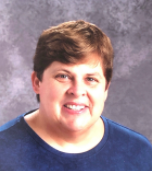 Laura Mulgrew is a special education teacher in Juneau, Alaska, and served as a member of the Alaska Education Challenge Safety and Well-Being committee. Laura is an advocate for all students and loves to provide the opportunity for students to develop an understanding of themselves and their skills. Laura advocates for safe and healthy schools for students and staff; as well as mutual respect amongst all. Laura believes it is the responsibility of all educators to develop relationships with students that will provide them the opportunity to reach their highest levels of achievement, academically and socially/emotionally.
Laura Mulgrew is a special education teacher in Juneau, Alaska, and served as a member of the Alaska Education Challenge Safety and Well-Being committee. Laura is an advocate for all students and loves to provide the opportunity for students to develop an understanding of themselves and their skills. Laura advocates for safe and healthy schools for students and staff; as well as mutual respect amongst all. Laura believes it is the responsibility of all educators to develop relationships with students that will provide them the opportunity to reach their highest levels of achievement, academically and socially/emotionally.  Marguerite Roza, Ph.D., is the Director of the Edunomics Lab and a Research Associate Professor at Georgetown University. Dr. Roza’s research focuses on quantitative policy analysis, largely in the education finance arena. Edunomics Lab is a Georgetown University research center exclusively dedicated to exploring and modeling complex education finance decisions to inform education policy and practice. Established in 2012, the center is nationally recognized as a leader in the field of education finance.
Marguerite Roza, Ph.D., is the Director of the Edunomics Lab and a Research Associate Professor at Georgetown University. Dr. Roza’s research focuses on quantitative policy analysis, largely in the education finance arena. Edunomics Lab is a Georgetown University research center exclusively dedicated to exploring and modeling complex education finance decisions to inform education policy and practice. Established in 2012, the center is nationally recognized as a leader in the field of education finance. Jenna Sedmak is the Director of Communication & Client Partnerships at SME Strategy. Jenna’s background is in organizational communication and strategic planning. Her experience includes both public and private sector work specializing in project management, strategic plan development, organizational communication and culture, and strategic communication management.
Jenna Sedmak is the Director of Communication & Client Partnerships at SME Strategy. Jenna’s background is in organizational communication and strategic planning. Her experience includes both public and private sector work specializing in project management, strategic plan development, organizational communication and culture, and strategic communication management. Anthony Taylor is the managing partner at
Anthony Taylor is the managing partner at 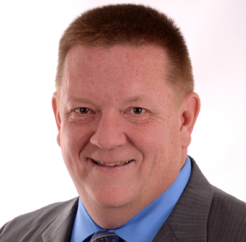 Kenneth S. Trump M.P.A., is President of National School Safety and Security Services, a Cleveland-based national consulting firm specializing in school security and emergency preparedness training, school security assessments, school emergency planning consultations, crisis school safety communications, litigation consulting and expert witness support, and related school safety and crisis consulting services. Ken is one of the nation’s leading school safety experts with more than 30 years of front-line public and private urban, suburban, and rural school security experience working with school and safety officials from all 50 states and internationally.
Kenneth S. Trump M.P.A., is President of National School Safety and Security Services, a Cleveland-based national consulting firm specializing in school security and emergency preparedness training, school security assessments, school emergency planning consultations, crisis school safety communications, litigation consulting and expert witness support, and related school safety and crisis consulting services. Ken is one of the nation’s leading school safety experts with more than 30 years of front-line public and private urban, suburban, and rural school security experience working with school and safety officials from all 50 states and internationally. Ruth Wageman believes that the most important problems and aspirations of our time can only be addressed by brilliant collaborations. She is one of the foremost scholars and practitioners studying and working with teams, especially leadership teams. The core of Ruth’s research has been focused on the conditions that influence superb team performance, resulting in the 6 Team Conditions.
Ruth Wageman believes that the most important problems and aspirations of our time can only be addressed by brilliant collaborations. She is one of the foremost scholars and practitioners studying and working with teams, especially leadership teams. The core of Ruth’s research has been focused on the conditions that influence superb team performance, resulting in the 6 Team Conditions.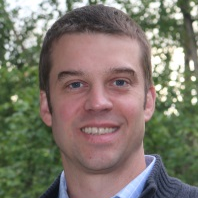 Ben Walker teaches middle school science in Anchorage, Alaska, at Romig Middle School. He is National Board Certified, the 2018 Alaska State Teacher of the Year, the 2019 National Awardee for the NSTA Shell Science Teaching Award, and a member of the inaugural National Geographic Teacher Advisory Council. Ben believes connections and context matter as much as content and works to give his students authentic science experiences that are relevant to their world, both locally and globally. Ben loves to collaborate with other teachers and take risks and experience discomfort to grow his pedagogy. His wife is also an award-winning science teacher and they have two elementary-aged children and a new puppy, Althea. Ben enjoys running and getting outside in his free time as well as creating, whether through writing, photography and film, or DIY home projects.
Ben Walker teaches middle school science in Anchorage, Alaska, at Romig Middle School. He is National Board Certified, the 2018 Alaska State Teacher of the Year, the 2019 National Awardee for the NSTA Shell Science Teaching Award, and a member of the inaugural National Geographic Teacher Advisory Council. Ben believes connections and context matter as much as content and works to give his students authentic science experiences that are relevant to their world, both locally and globally. Ben loves to collaborate with other teachers and take risks and experience discomfort to grow his pedagogy. His wife is also an award-winning science teacher and they have two elementary-aged children and a new puppy, Althea. Ben enjoys running and getting outside in his free time as well as creating, whether through writing, photography and film, or DIY home projects.